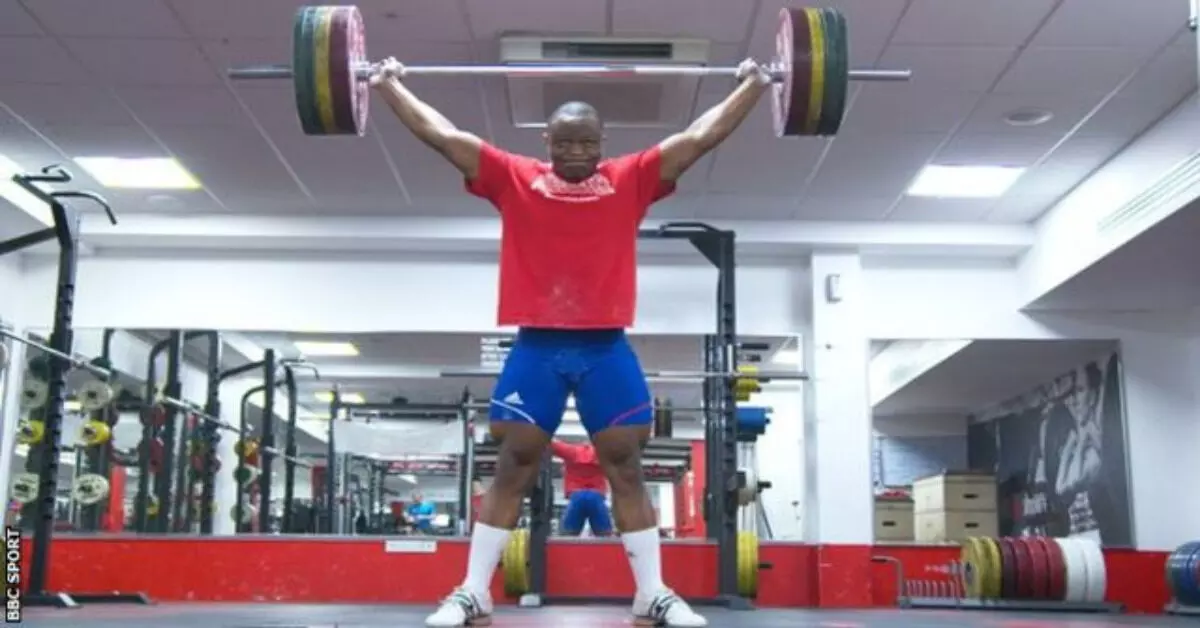Weightlifting
Cyrille Tchatchet — The weightlifter who once contemplated suicide, fought depression to reach the Olympics.
Here is the story of the braveheart who came back from depression to represent 80 million refugees all over the world.

Cyrille Tchatchet was paranoid when he left the athlete's village after the 2016 Commonwealth games in Glasgow. He did not know what to do next.
He did not want to go back to his native Cameroon, where he feared for his safety, and he did not have any acquaintance in the U.K. He lived under a bridge for a while in Brighton and ate what he could find; needless to say, it was not suitable for his mental health.
Talking to the Guardian, he said, "I knew nobody. I felt ashamed. You feel suicidal all the time because you think you are just useless." He was very close to committing suicide, but stand on the precipice, he saw the helpline number of Samaritans glued to the fence separating the grass from the steep slope.
He called the helpline number, and a few hours later, he was delivered to safety by a police car. However, that intervention by the Samaritans was only the start of the battle that he was to undertake to reach the Tokyo Olympics. He had to fight two legal battles to attain refugee status, and though he remained depressed, he was helped by the NHS counsellors to gain a grip on his depression. They even encouraged him to take up sports again.
The recovery:
Besides starting to train again, he enrolled himself in university and graduated with a first-class degree in Mental Health Nursing from Middlesex University.
He currently practices with a community mental health team in Harrow and does not shy away from visiting his patients at home when they are unwilling to visit the clinic. He feels that he is giving back to the country that has helped him gain a new perspective in life.
He still holds the citizenship of Cameroon, but he will apply for U.K citizenship in 2022 because he feels this to be a country with "a place where there is freedom of speech, freedom of movement and many opportunities."
Cyrille will be turning 27 soon, and as he reflects upon life, he feels, "It was a life experience, although unfortunately a difficult one. Back then, I was very young. I did not seek help early enough. I have learned to be more open."
Refocusing on sports helped him get through his depression, and on the plus side, he has won medals for England in 2017, 2018 and 2019 and is now set for Tokyo. However, he will not be allowed to contest as a representative of England; instead, he would be part of the 29 members of the International Refugee Team.
The Guardian records Mike Pearman, a three-times British Olympic weightlifter, saying, "He is certainly a talent. He has good technique and is very consistent. If his citizenship comes through in time, he could be a very important person in England's jigsaw for the Commonwealth Games in Birmingham next year" about the weightlifter.
Tchatchet's best lifts in the Olympic disciplines have come in the 165 kg snatch, in which the bar is pulled in one movement overhead while the competitor drops underneath it, and a 205 kg clean and jerk, where the athlete pulls the bar into the chest, squatting, stands up and then drives it overhead.
On the basic strength movement of a deep knee bend or squat, Tchatchet has also done 270 kg, which the Guardian informs is more than the combined bodyweights of the two heaviest international rugby props.
However, he now wants to replicate these achievements in a lighter weight category, and that would be difficult since the loss in body weight comes with a loss in body strength.
His coach, Shyam Chavda, hails his improvement as "phenomenal" and puts down his success to his work ethic. For the past couple of months, they have been working on perfecting his techniques such as refining lifting the bar from the floor, so it is closer to the body and better controlled."
Having been homeless for a while, Cyrille understands the predicament of a homeless person and sees the Olympics as a means of personal redemption and a platform to represent the 80 million displaced people of the world.
In the interview with Guardian, he talks of the inclusion of refugees into the games as a "message of hope, a message of solidarity that being a refugee does not mean the end."

